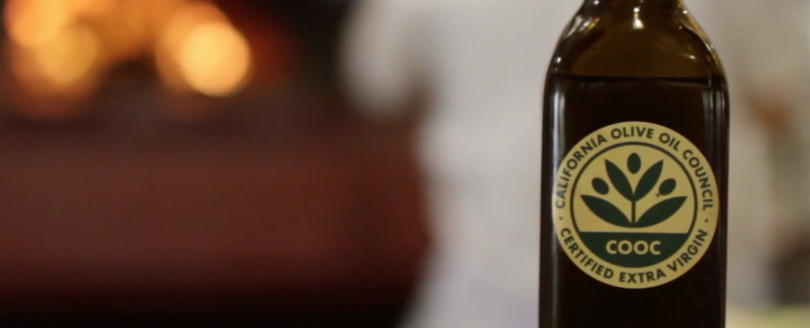
The California Olive Oil Council (COOC) in Clovis aims to maintain the standards for olive oil in the state, and to educate consumers about quality oil.
Written by Frank Lopez
While upholding the highest standards in the industry, a local agricultural trade association also seeks to educate the public on what to look for when they’re buying olive oil.
The California Olive Oil Council (COOC) in Clovis is dedicated to promoting certified California extra virgin olive oil through education, outreach and communication.
Founded in 1992 by a group of olive oil growers and enthusiasts, the COOC has more than 300 members including producers, industry service providers, retailers and e-commerce vendors.
David Garci-Aguirre is vice president and master miller at Corto Olive in Lodi and chair of the marketing committee at COOC. He got into olive oil about 15 years ago.
He built the first mobile olive oil processing plant in 2009, and then sold to another olive oil company in 2013. He then began working for Corto.
At the time, there were not a lot of olive mills, which led to producers having a lot of olives sitting around, impacting the quality of the oil eventually produced.
“Instantly, we saw an improvement in quality, and now I think there are three or four mobile processing plants in California,” Garci-Aguirre said.
He said 99% of the oil produced in the U.S. comes from California.
A challenge for the industry in the U.S. is that most of the olive oil available is of really poor quality.
Even though a lot of olive oil is labeled “extra virgin,” the highest grade for olive oil, it often isn’t.
The COOC’s mission is to ensure the quality of all of its producers’ olive oil through a certification process and seal, and to educate consumers that when they are buying COOC olive oil they are buying the best they can possibly get.
There’s limited legal ramifications for a producer labeling oil as “extra virgin” even if it isn’t. Garci-Aguirre said that California has the highest standard for olive oil in the world, but they only apply to producers making 5,000 gallons or more.
Like any oil, olive oil oxidates and quality degrades over time, and since the standards are tested during production, the quality of the oil could be very different by the time it gets in consumer’s hands.
Garci-Aguirre said great olive oil is made all over the world, but California’s olive oil producers are winning competitions on all levels.
Garci-Aguirre does have advice for people that are looking to buy more quality olive oil.
First, consumers need to view olive oil as a perishable product.
“You have to understand where your oil is coming from, what producer made it, and how much energy they put into making sure that it stays fresh until it gets to the consumer,” he said.
When at the grocery market, shoppers want to look for olive oil in a bag-in-box package, which is the best storage next to dark glass bottles.
Exposure to light degrades the olive oil’s quality at quicker rate.
One issue facing California producers is demand exceeding available supply, with growers looking for more land to grow on.
Prices are now at a point where the returns are attractive. Another advantage is that olive trees aren’t as thirsty, needing about a third of the water needed for an almond tree.








